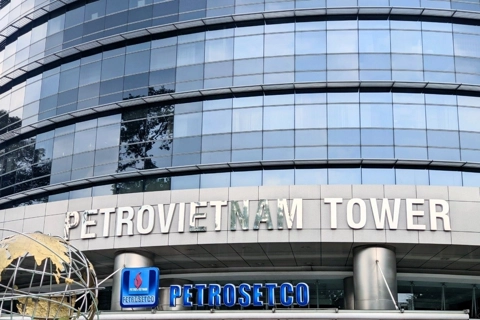Finance ministry proposes lowering registration fee by half for domestic cars
The ministry expects such policy continues to contribute to the resumption of supply chains and promote the expansion of automobile production/assembling in Vietnam.
The Ministry of Finance (MoF) has proposed a draft decree stipulating a 50% cut in the registration fee for domestically- produced or assembled cars in a bid to stimulate car sales and support the local automobile industry.
| Car production at Vinfast's manufacturing plant. Photo: Pham Hung |
At present, the draft decree is open for consultation by Government agencies and localities and would take effect from November 15, 2021 – May 15, 2022.
In case the Government signs off the decree after November 15, it would be effective between December 1, 2021, and May 15, 2022.
According to the MoF, the move is necessary to support local businesses in the auto industry that are facing severe impacts from the Covid-19 pandemic.
While a lower registration fee would no doubt boost car sales, the ministry expects such policy continues to contribute to the resumption of supply chains and promote the expansion of automobile production/assembling in Vietnam.
The MoF estimated the 50% cut in registration fees would not result in a decline of state budget revenue, as a sharp rise in car sales may boost excise and value-added taxes.
For the last six months of 2020, a similar policy led to revenue from registration fees dropping by VND7.31 trillion (US$321.6 million), but total budget collection rising by VND14.1 trillion ($619.5 million) as a result of nearly doubling car sales to 102,900 against the first half of 2020.
In the draft decree, however, the MoF noted Vietnam is facing the risk of being accused of breaching the General Agreement on Tariffs and Trade (GATT) under the WTO, and therefore, may be requested for an explanation from countries not having car production activities in Vietnam.
The MoF, nevertheless, suggested the policy only lasts six months and should be considered as a short-term solution to alleviate effects from the pandemic for the local economy.
Moreover, the majority of global car manufacturers have set up production plants in Vietnam, including Toyota, Mazda, Hyundai, or Kia.
“Incentive policy for domestic cars would also benefit foreign car brands,” noted the ministry, not to mention the fact that neighboring countries such as Indonesia or Malaysia are also adopting preferential policies for the domestic car sectors.
For the first six months of 2021, the number of new car registration suffered a decline of 24% against the last half of 2020 to 160,000.
In the third quarter, the figure averaged 16,200 per month, less than half of the one recorded in the previous quarter.
The MoF noted despite the fact that Vietnam has gradually contained the Covid-19 outbreak, the situation remains serious and poses high risks of supply chain disruption for the manufacturing sectors.
A number of car manufacturers have also voiced their concern that the local car market may continue to be under Covid-19 impacts in the next two or three years before full recovery.
In another move, 11 car importers of brands such as Audi, Volkswagen, Subaru, Volvo, Jeep, or Porsche on October 25 called for the Government to apply the 50% registration fee cut for imported cars to ensure fair treatment.













